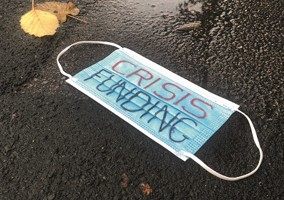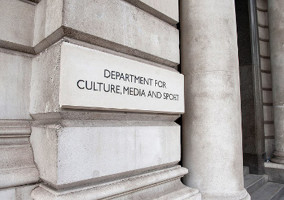The government has accepted most of the recommendations made by MPs who were concerned about transparency and processes around its pandemic support for charities.
However, it said it rejected one recommendation and said it cannot provide a “definitive trigger” for when it will release funding for charities in future.
Earlier this summer the Public Accounts Committee, a group of MPs who scrutinise the work of government departments, published a report which criticised several aspects of the process to distribute emergency funding to charities during the pandemic.
In its response, published last week, the government said it was working on many of the committee’s suggestions.
Better monitoring and understanding charities
The government revealed that it is working with other bodies on ways to better understand the charity sector.
It said: “The Department for Digital, Culture, Media and Sport (DCMS) will be able to set out current actions being undertaken to monitor and understand the financial health and resilience of the charity sector, including use of pandemic support schemes.”
This involves working with the Charity Commission and others “to undertake a project to review and improve evidence and data available to policy makers, concerning the health and resilience of the charity and social enterprise sectors”.
DCMS is expected to provide a further update to the committee by September but implementing any actions may take longer.
‘Further support will be based on a range of factors’
The government rejected the recommendation that it should be able to articulate when it would step in to provide funding to the sector in future.
It said it “disagrees with the Committee’s recommendation” because: “There is no single data source that can provide a definitive trigger for taking a decision on further financial support.”
Instead, it said further support for charities would be “based on a range of quantitative and qualitative sources, including intelligence on challenges facing critical sub-sectors”.
DCMS will also “set out for the committee the range of evidence, data and intelligence under which support to the sector, including financial support, will be assessed”.
Influence of special advisers
The committee had been concerned about the level of involvement special advisers had in key decisions about new funds, and it recommended that DCMS look at “the steps it took to ensure there was a clear distinction between impartial advice from civil servants and the political advice offered by special advisers”.
In response the government says it accepts this and has already implemented the recommendation.
This says the government is “satisfied that civil servants and special advisers at all times followed the Civil Service Code and Code of Conduct for Special Advisers in the distribution of the Covid-19 Charities Funding”.
The government says that special advisers were present at a meeting to discuss proposed grants, but that the meeting was chaired by officials.
“No bids were added to or removed from the list of recommendations as a result of the meeting or after that for any other reason,” the government says.
However, it admits that there were changes following the meeting that involved special advisers.
“For a small number of bids, the monetary value of the award being recommended was adjusted between the meeting and the official submissions to ministers,” it says. “The decision to do so was made by DCMS civil servants who were satisfied that the recommendations were all evidence-based and value for money.”
Contractors’ value for money
PAC had asked the DCMS to explain how a contract with accountancy firm PricewaterhouseCoopers provided value for money.
The government says: “PricewaterhouseCoopers have been judged to have met the relevant performance metrics at all stages.”
It said it was difficult to offer specific examples of when consultants would be used in future due to the unusual nature of the pandemic but that it would “ensure that any proposal to engage professional services is thoroughly assessed on a case by case basis through its internal assurance process”.
Related articles











